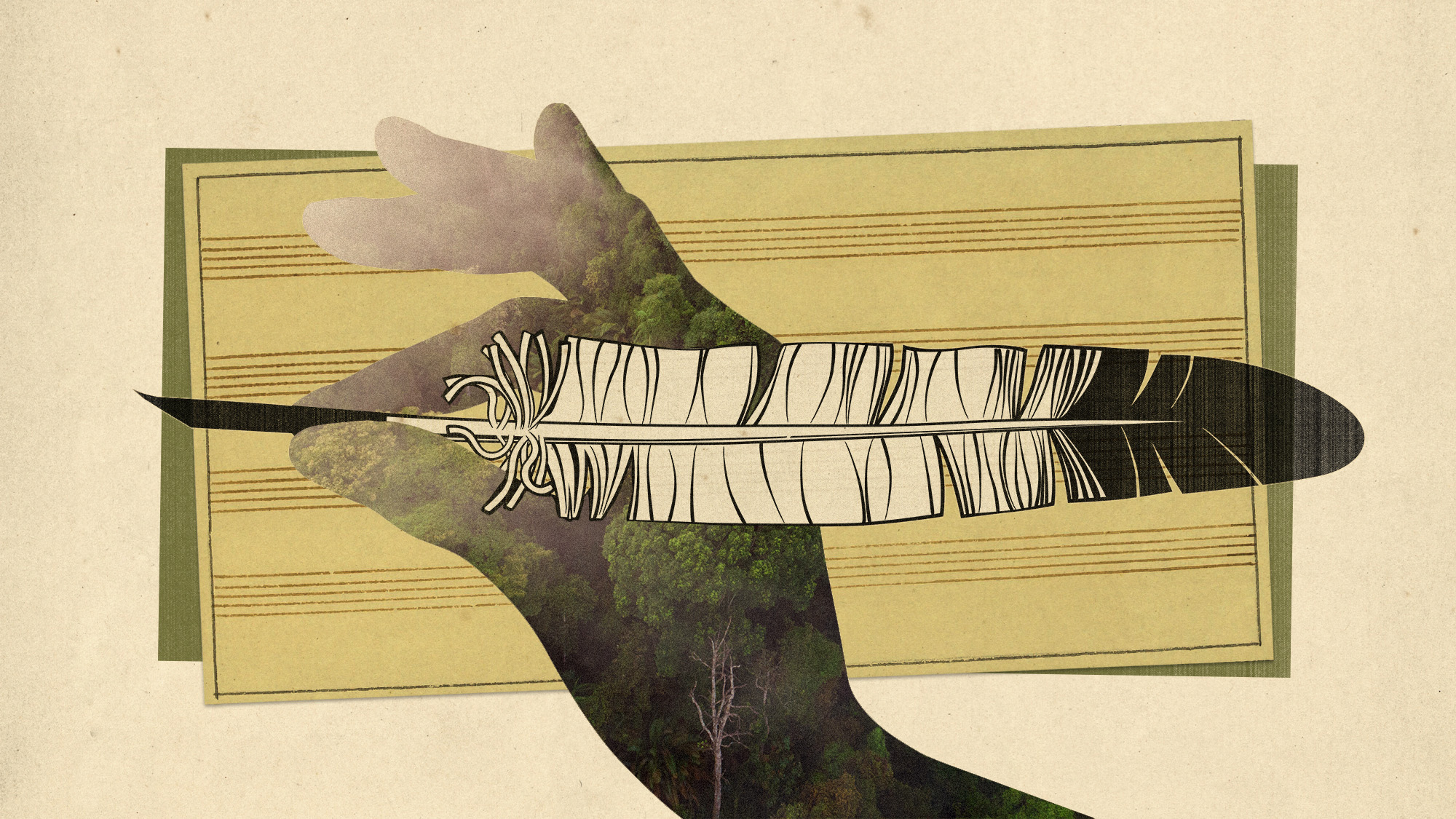Ecuador's cloud forest has legal rights – and maybe a song credit
In a world first, 'rights of nature' project petitions copyright office to recognise Los Cedros forest as song co-creator

A free daily email with the biggest news stories of the day – and the best features from TheWeek.com
You are now subscribed
Your newsletter sign-up was successful
A cloud forest in Ecuador could be recognised as an author: the latest development in a burgeoning global movement to grant legal rights to nature. The More-Than-Human-Life (Moth) Project, an initiative that works to advance non-human rights, has petitioned Ecuador's copyright office to recognise the Los Cedros forest as the co-creator of a song composed there. The move by the NYU School of Law-based group is the world's first legal attempt to "recognise an ecosystem's moral authorship of a work of art", said The Guardian.
The song, which includes sounds of bats, monkeys and leaves recorded in Los Cedros, was "written with the forest", said writer Robert Macfarlane, who organised the expedition for his upcoming book about the rights of nature movement. "We were briefly part of that ongoing being of the forest, and we couldn't have written it without the forest."
Pacha Mama: a global phenomenon
The Los Cedros reserve in the northwest Andes is home to a "vast" number of species, said BBC Future. From jaguars and bears to 400 species of bird, the biodiversity is "astonishing". Most of the reserve is in a "cloud forest", where "the air is heavy with moisture from drenching rain and permanent condensation". Despite "extensive deforestation" in the surrounding region, the forest's nearly 12,000 acres "buzz and thrum with life".
The Week
Escape your echo chamber. Get the facts behind the news, plus analysis from multiple perspectives.

Sign up for The Week's Free Newsletters
From our morning news briefing to a weekly Good News Newsletter, get the best of The Week delivered directly to your inbox.
From our morning news briefing to a weekly Good News Newsletter, get the best of The Week delivered directly to your inbox.
But that is largely thanks to a "powerful, and increasingly influential, global legal movement" that began in the 1990s. In 2008, lobbying by Indigenous groups led Ecuador to adopt a new constitution, which enshrined the rights of Pacha Mama (Mother Nature). It became the world's first country to state that nature had the same rights as people: one of the first "major steps" in the rights of nature movement.
The idea is rooted in a "common Indigenous belief", said Yes Magazine: that nature, from the Andean mountains to a "single soldier ant", is a living system with which humans must "harmoniously coexist". Conservation efforts hit a "major stumbling block" in 2017, when Ecuador granted the state-owned mining company concessions in most of Los Cedros. After a prolonged legal battle, in 2021 Ecuador's Constitutional Court decided to revoke the mining permits and grant Los Cedros legal personhood: a world first, transforming the rights of nature from a "theoretical constitutional text into a tangible, real-world policy".
The decision is influencing rulings all over the world. Initiatives to recognise the rights of animals, rivers and mountains have been pursued in 44 countries, including New Zealand. "It's a phenomenon that's catching fire and that's spreading very rapidly around the world," said César Rodríguez-Garavito, professor at NYU School of Law and founding director of the Moth Project.
The more-than-human world
Thanks to the "landmark" ruling, Los Cedros has remained a "sanctuary", said a Moth Project report published in June. Such rulings "can be effective tools to protect endangered ecosystems" – but they alone are "not sufficient" to protect threats to the "more-than-human world". Since his election last year, Ecuadorian President Daniel Noboa has been "aggressively" courting investment in the country's mining sector, touting it as a means to create jobs in a nation "ravaged by criminal activity" and drug trafficking, said Inside Climate News.
A free daily email with the biggest news stories of the day – and the best features from TheWeek.com
Nevertheless, "no other nation has come close to Ecuador's growing jurisprudence on the issue". In two referendums last year, voters chose to block mining in another cloud forest, and to stop oil production in part of the Amazon rainforest. "We now have a whole generation of young people who have grown up only knowing that nature has rights," said Ecuadorian political scientist and environmental activist Natalia Greene. "The law has influenced people's understanding of nature and that is very powerful."
The 2021 ruling also "gives us confidence and a firm legal foundation" for the latest claim on moral authorship, Rodríguez-Garavito told The Guardian.
"So much art, arguably all art, is made collaboratively with the living world, but the law doesn't recognise this," said Macfarlane. Having a "more-than-human being" recognised as a moral author in a work of art would be "both incredibly exciting and drastically overdue".
Harriet Marsden is a senior staff writer and podcast panellist for The Week, covering world news and writing the weekly Global Digest newsletter. Before joining the site in 2023, she was a freelance journalist for seven years, working for The Guardian, The Times and The Independent among others, and regularly appearing on radio shows. In 2021, she was awarded the “journalist-at-large” fellowship by the Local Trust charity, and spent a year travelling independently to some of England’s most deprived areas to write about community activism. She has a master’s in international journalism from City University, and has also worked in Bolivia, Colombia and Spain.